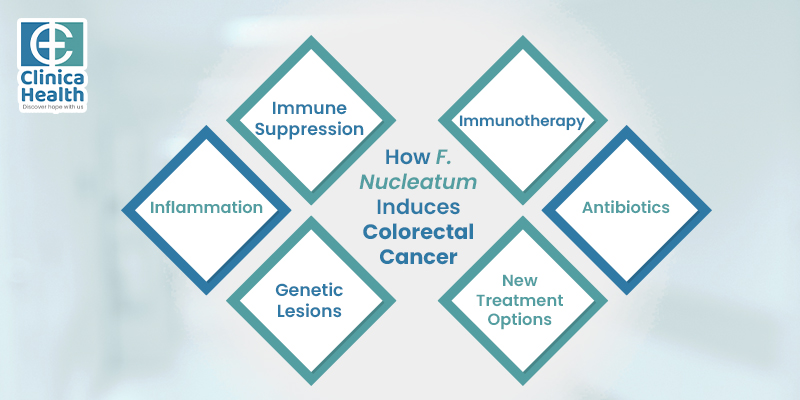-
 Call Now:
8010 552 552
7595 838 844
Call Now:
8010 552 552
7595 838 844
-
 Email Me:
[email protected]
Email Me:
[email protected]
Colon cancer, better known as colorectal cancer when grouped, is a leading cause of cancer-related deaths worldwide. As a result, the disease has been a topic of research among many scientists regarding its prevention, detection, and treatment. While genetic mutation, lifestyle choices and environmental factors are the leading factors behind colorectal cancer, surgeons have also found a microbial connection that is closely related to the development of this particular type of cancer.
According to various studies and opinions of oncologists performing colorectal cancer surgery, scientists have found a strong connection between bacteria, Fusobacterium nucleatum (F. nucleatum) and the rapid growth of cancerous cells in the colon.
F. nucleatum is a common bacteria found in the oral cavity and is associated with diseases like periodontal disease and cavities. However, the high prevalence of this bacterium in the tumour of colorectal cancer tissues has sparked an investigation into how F. nucleatum has survived in the gut and led to the development and growth of colorectal cancers.
There are several mechanisms through which the new bacterium, F. nucleatum, contributes to the carcinogenesis of colorectal tissues.
The discovery of Fusobacterium nucleatum in the colon cancer cells has brought about significant developments in the new treatment options for this deadly disease, says a reputed oncologist known for performing complicated colorectal cancer surgery.
If this bacterium is targeted, there is hope that patients will become more responsive to treatment. Various clinical trials have been started to find which treatment will induce a successful outcome.

While a strong relationship has been established between Fusobacterium nucleatum and colorectal cancer, research is still going on about its role in the development and progression of the disease.
The discovery of Fusobacterium nucleatum has also opened new avenues for the treatment of colorectal cancer and given hope to the oncologists performing colorectal cancer surgery and researchers.